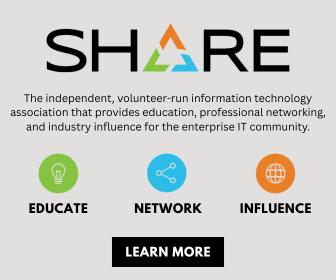Attending a conference with fellow practitioners is priceless – a great opportunity to share what works, learn new design principles, and network for mutual benefit. And the CMGIMPACT24 in Atlanta on Feb 6-7 was one such meeting of minds.
Companies ranging from dental insurers to banks like Capital One came together – all united by a common interest in the evolving landscape of technology and its implications for the enterprise.
The first day kicked off with a keynote by Akhila Gudla from AWS who provided a behind-the-curtain exploration of how the fields of Artificial Intelligence (AI) and Industry 4.0 converge, through the lens of five customer examples. Akhila brought to light the practical applications of AI in revolutionizing traditional industries, showcasing how businesses are leveraging AI to optimize operations, enhance efficiency, and drive innovation. She demonstrated not just the potential of AI in industrial applications but also the strategic approach companies are adopting to integrate AI into their core operations.
One of the most compelling sessions was presented by the Broadcom team (Gashaw Tsegaye Shawo and Venkat Balabhadrapatruni), who dove into the ethical dilemmas surrounding artificial intelligence (AI). The conversation revolved around how we, as a collective of technologists, ethics departments, and employees, can steer these advancements toward positive outcomes. The presentation served as a crucial reminder that the path AI takes is not predetermined but shaped by our decisions and ethical considerations. It underscored the importance of foresight, responsibility, and ethical frameworks in the development and deployment of AI technologies.
Another highlight of the conference was Steven Thomas’s insightful presentation on the delicate balance required in simplifying mainframe costs without oversimplifying. His advice, “As simple as possible, but not simpler,” resonated as a mantra for anyone dealing with complex systems. Thomas’s session was not just about cost management; it was an example of the elegance of simplicity. His session was a powerful reminder that simplicity should be a guiding principle, not an afterthought.
Walt Carter’s session on organizational change management stood out for its dynamic approach to addressing the necessity for continuous movement and adaptation within organizations. Using the sinking ship analogy and the Model for Managing Complex Change from Knoster T., Carter illuminated the challenges and strategies of leading through change. His ability to convey the essence of leadership in such a turbulent process was exceptional. Carter’s session went beyond the theoretical, offering practical insights and tools for navigating organizational change with resilience and foresight. One felt his practical experience shining through as he provided us with clear frameworks for managing and thriving through transitions.
During the conference, I also had the privilege of delivering a keynote speech on the second day, where I discussed the findings from the research of our firm Information Services Group, Inc. across 50 different companies and platforms regarding the adoption of Enterprise Scale AI. I talked about how this will revolutionize enterprise architectures by introducing new Systems of Intelligence – and cause a shift from traditional, linear enterprise processes to a more dynamic, modular approach, using APIs to create coordinated interactions between companies.
I also covered the emerging AI competition among traditional software platforms like SAP, data management platforms such as Snowflake, and cloud services like AWS Sagemaker. The talk ended with insights on the critical decisions companies must make between developing their own solutions or purchasing existing ones, and how these decisions influence technological partnerships. The very engaging audience sparked lively discussions with me that continued over lunch.
These sessions, among others, encapsulated the essence of the conference—a gathering that was not just about sharing knowledge but about sparking conversations that drive action. The discussions that ensued in the hallways, over lunch, at the happy hour, and in breakout rooms created new friendships. The atmosphere was casual with the energy of technology professionals who, despite their varied backgrounds, shared a common goal: to learn from each other.
Reflecting on the CMGIMPACT conference, it’s clear that the journey of learning and adaptation never ends. The insights from AWS, the Broadcom team, Steven Thomas, and Walt Carter, among others, took us across multiple technologies towards common lessons that influence our approaches and decisions.
CMG is a community by technology professionals for technology professionals. The two days were a reminder that in the face of rapid technological advancement, our shared values, our first principles, and commitment to positive outcomes are what will guide us towards a promising future in technology. I look forward to working more closely with the CMG team to continue contributing and sharing.








0 Comments